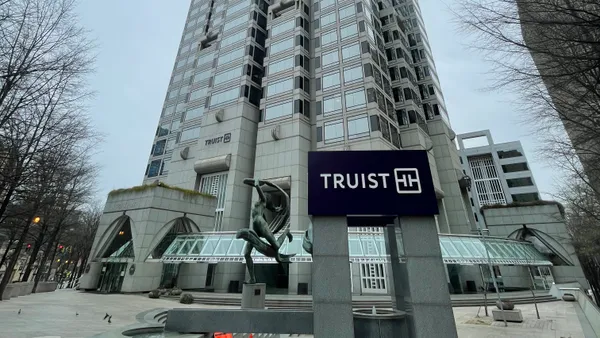Jim Esposito, co-head of Goldman Sachs’ global banking and markets division, “has decided to retire” after nearly 29 years, according to a memo published in full Monday by Business Insider.
“No matter the role, Jim has dedicated himself to our business with a keen focus on serving our clients, promoting effective risk management and enhancing the culture of the firm,” Goldman CEO David Solomon wrote in the memo. “On a personal note, I am grateful for Jim’s counsel, friendship and sense of humor during our many years of collaboration.”
Esposito, later Monday, wrote about his decision to leave, in a statement seen by Bloomberg.
“Lately, I’ve been consumed by a feeling of merely going through the motions which isn’t in my DNA,” Esposito wrote. “Ultimately you reach a point where opportunities for change become more limited.”
Esposito almost certainly would rank as the highest-profile executive to leave Goldman over the past year, though several veterans with 20 or more years at the bank have moved on.
Julian Salisbury, a 25-year Goldman veteran and the bank’s CIO of asset and wealth management, announced in June he was headed to Sixth Street to become co-CIO. Luke Sarsfield, a global co-head of asset management alongside Salisbury, left the firm in April after 23 years and later became CEO of Dallas-based asset manager P10. John Rogers, Goldman’s chief of staff who joined the firm in 1994, left in August. And Ed Emerson, Goldman’s head of global commodities, announced he will retire in March after a 24-year stint at the bank.
Esposito had his sights set on becoming CEO or president of Goldman, people familiar with the matter told The Wall Street Journal. Solomon, however, has indicated to the bank’s top executives he has no intention of stepping down, the sources said.
Solomon’s future had come into question early last year after he admitted to a meeting of the firm’s partners that he waited too long to cut the bank’s headcount by 3,200 employees. The mea culpa came as the bank attributed more than $3 billion in losses over a span of three years to its Platform Solutions division, which housed Goldman’s ill-fated consumer-banking operation.
Esposito stood against Goldman’s further expansion into consumer lending and contributed to its decision to pull back from that model in 2022, The Wall Street Journal reported.
Goldman reorganized that autumn and combined its investment-banking and trading operations under Esposito, Dan Dees and Ashok Varadhan. Esposito had championed that combination, and the division brought in roughly two-thirds of Goldman’s revenue last year — about $30 billion, Bloomberg reported.
But Esposito’s vocal opposition to the consumer-banking venture may have hurt his chances of moving up, Bloomberg reported. And several candidates emerged in the event of a succession. Goldman President John Waldron is seen by some as a likely successor to Solomon. Marc Nachmann, who was named Goldman’s asset and wealth management chief in the 2022 reorganization, is another. And Dees, too, could move up the ranks if other high-profile leaders step aside, the Journal noted.
Esposito’s departure is set to take effect in the next couple of months, the publication reported. He will serve as a senior director thereafter, Solomon wrote in Monday’s memo.
Dees and Varadhan will co-lead investment banking and trading after Esposito’s departure, the Journal reported.
In his statement, Esposito said "there’s a strong pull to explore new adventures.”
Esposito joined Goldman in August 1995 as a salesperson for emerging-markets debt, Solomon wrote. He became a managing director in 2002, a partner in 2006, and has been co-chair of the partnership committee since 2021.
"Espo was an individual that led the firm through some difficult times,” Ricardo Mora, a former Goldman partner who retired from the bank last year, told the Financial Times. “He was a positive influence, a mentor to many, a top-notch professional and his leadership will be missed.”











